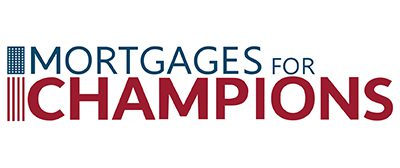Dave Stein COO at Residential Home Funding, was quoted in the Record on underwater mortgages. The article below, was written by Record reporter Kathleen Lynn.
How Underwater Homeowners Can Get A Cheaper Interest Rate
When mortgage rates dropped below 4 percent, Noorus Khan and her father, Badrul Khan, wanted to refinance their loan to lower their monthly payment. But there was a problem: They had bought their Pompton Lakes house in early 2007, and the housing crash had wiped out most of their equity, making them ineligible for a typical refinance.
They found their answer in the Home Affordable Refinance Program (HARP), introduced by the federal government in response to the housing crisis. By lowering their rate from 4.8 percent to 3.8 percent earlier this year, the family freed up $261 a month, said Noorus Khan, an accountant.
“We can use it toward other expenses,” said Khan, who lives with her father, a college professor, and two siblings in their home.
The HARP program was designed for homeowners who wanted to take advantage of the drop in interest rates over the last several years, but couldn’t under traditional lending rules because they owed too much on their mortgages — or were even underwater, owing more than the property was worth.
Ever since HARP was created in 2009, more than 2.5 million homeowners have used it to refinance. Although it got off to a slow start, the number of homeowners using the program rose after the government expanded eligibility. In April, the most recent figures available, about one in four refinances of Freddie Mac and Fannie Mae loans were HARP transactions.
“For underwater borrowers, just having access to the ability to refinance is very valuable,” said Keith Gumbinger, vice president of HSH.com, a Riverdale publisher of mortgage information.
About 356,000 homeowners in New Jersey — and 9.7 million nationwide — owe more on their mortgages than their homes are worth, according to CoreLogic, a real estate data and analytics firm. That’s about one in five homeowners with mortgages, both nationally and in the state.
With so many homeowners still underwater, HARP, which was scheduled to end at the end of this year, has been extended through 2015.
HARP can be used for condos, second homes and investment properties, as well as single-family homes. One big drawback is that it’s available only to homeowners whose loans have been purchased by Fannie Mae or Freddie Mac, leaving millions of borrowers out of luck. (Freddie Mac and Fannie Mae are government-sponsored entities that don’t make loans directly, but purchase them from lenders, guarantee them and package them for sale to investors.) And HARPs can be used only on mortgages bought by Fannie and Freddie before June 1, 2009.
Homeowners may not realize that their mortgages are owned by Fannie or Freddie, because they make their monthly payments to a different company, said David Stein, chief operating officer of Residential Home Funding, the Parsippany-based company that refinanced the Khans’ loan. But the loan may well have been sold to Fannie or Freddie, even if it is being serviced by another company.
HARP has recently lost some of its appeal as mortgage rates have rebounded to over 4 percent.
“If interest rates are at 4.5 percent and you have a mortgage at 4.5 percent, what’s the point?” said Gumbinger. “But if you’ve got a 5.5 percent loan, there’s nothing wrong with refinancing to a 4.5 percent.”
Figuring out if a refinance is worthwhile is basically just a math problem: How much will it cost you to refinance, and how long will it take to break even? If you can save only a small amount each month, or you’re planning to move soon, it’s probably not worth the time and money to refinance.
For example, let’s say refinancing will run around $3,000, which mortgage companies say is a reasonable rough estimate. (Some lenders also offer low- or no-cost options, which they can do by either adding the closing costs to the mortgage amount or charging a slightly higher interest rate.) If the refinance will save you $200 a month, that means it will take about 15 months to break even. If you plan to stay in the house longer than that, it’s worth considering.
“You’d like to recapture your costs within a two-year time frame,” advised Robert Wilderotter, a vice president with Real Estate Mortgage Network Inc. in Hackensack.
The next step in a HARP refinance is to find out if you qualify, by checking to see if your mortgage is backed by Fannie Mae or Freddie Mac. You can look it up on two websites (see box).
Then, Freddie Mac advises you to check to see if your current mortgage servicer offers HARP refinancings, which could streamline the process because that company already has your files and may not need as much new paperwork. But you’re not required to use your current company for the refinance, according to Fannie Mae and Freddie Mac. As with any loan, it’s a good idea to comparison-shop for the best fees and rates. Not every lender offers HARP refinances, so you may have to call around.
Stein said HARP refinances are easier to get than standard refinances, because they typically don’t require home appraisals or proof of assets. He also said that to encourage lenders to make these loans, Fannie and Freddie have assumed some of the risks that otherwise would fall on the lenders.
Although the HARP program doesn’t put any limit on how big the mortgage can be, compared to the home’s value, some individual lenders set their own limits — often refusing to lend more than, say, 125 percent of the home’s value. Others have no limits.
If denied, try again
“If homeowners get turned down, they should find out why and call somewhere else,” said Matt Hackett, underwriting and operations manager of Equity Now, a direct mortgage lender in New York that lends in six states, including New Jersey. “Someone else might be able to do the loan.”
Bank of America, New Jersey’s largest bank by deposits, says that HARP loans represent about 25 percent of its refinance transactions. The company does HARP loans only for current customers, according to a spokesman. Wells Fargo, New Jersey’s second largest bank by deposits, also does HARP loans only for its current customers.
Two researchers from the Federal Reserve Bank of New York said recently that HARP could benefit hundreds of thousands more homeowners if some of its restrictions were lifted — for example, if the 2009 cutoff date was lifted, or if homeowners could use HARP more than once, which is not currently allowed.
“Many borrowers are still trapped paying interest rates far above the current market rate,” Joshua Abel and Joseph Tracy wrote in a recent report. Changes to HARP, they wrote, could “provide ongoing support for the housing market recovery.”
Article was copied from: http://www.northjersey.com/realestate/217270921_How_underwater_homeowners_can_get_a_cheaper_interest_rate.html?c=y&page=3#sthash.IqwlDn6p.dpuf






















